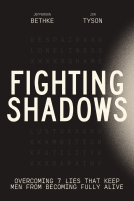
The Way Up Is Down
Becoming Yourself by Forgetting Yourself
by Marlena Graves
This title was previously available on NetGalley and is now archived.
Send NetGalley books directly to your Kindle or Kindle app
1
To read on a Kindle or Kindle app, please add kindle@netgalley.com as an approved email address to receive files in your Amazon account. Click here for step-by-step instructions.
2
Also find your Kindle email address within your Amazon account, and enter it here.
Pub Date Jul 14 2020 | Archive Date Aug 13 2020
InterVarsity Press | IVP Formatio
Talking about this book? Use #TheWayUpIsDown #NetGalley. More hashtag tips!
Description
Christianity Today Award of Merit in Spiritual Formation
"Now, with God's help, I shall become myself."
These words from Danish philosopher Søren Kierkegaard resonate deeply with Marlena Graves, a Puerto Rican writer, professor, and activist. In these pages she describes the process of emptying herself that allows her to move upward toward God and become the true self that God calls her to. Drawing on the rich traditions of Eastern and Western Christian saints, she shares stories and insights that have enlivened her transformation. For Marlena, formation and justice always intertwine on the path to a balanced life of both action and contemplation.
If you long for more of God, this book offers a time-honored path to deeper life.
Advance Praise
"I know of no one who cares less for the superficial 'worries of this life' (Mt 13:22) than Marlena Graves. She is a voice calling out in our generation, beckoning us to a vision of Christ that has nearly been drowned out by the rise of self-help pseudo-Christianity. And this book? This book is her heart on paper. If you want to sit under a spiritual giant, and if you want to remember just what kind of freedom we are called to in Christ, do not miss this message."
Sharon Hodde Miller, author of Nice: Why We Love to Be Liked and How God Calls Us to More
"We have forgotten the way of Jesus—this one who 'calls us to stoop,' writes Marlena Graves. In her newest book, The Way Up Is Down, Graves's voice is bold and prophetic, calling each of us out of the wilderness of self-will to repent of our lust for power and material greed. But this isn't just a book. It's the compelling witness of a life: a woman born into poverty and racial oppression, who sees and loves the lowly and invites us to become like them."
Jen Pollock Michel, author of Surprised by Paradox and Keeping Place
"It is a rare and sacred gift for a writer to serve her raw heart—tender and salted with tears—to nourish the world. The Way Up Is Down is a profound act of Christlike service. Honest, poignant, and lyrical, this is a book that shows what it tells. It's unforgettable, incisive, and deeply needed. Thank you, Marlena, for sharing your precious gift—your story, your yearning for a better way. I am inspired."
Paul J. Pastor, author of The Face of the Deep, The Listening Day, and Palau: A Life on Fire
"When conversations about discipleship or living into the kingdom of God seem heady and out of reach, I turn to writers like Marlena whose feet are firmly on the ground. She gives us a path to walk and practices to embody our big hopes and dreams about the upside-down ways of Jesus. If you've ever wondered how the last will be first (and what that even means for someone with privilege), Marlena is a faithful companion and guide to you. She is bold and pastoral—a rare combination—and best of all, she is the real deal. She has never lost sight of the people for whom this gospel is such good news, and in her words there is an invitation for all of us."
Sarah Bessey, author of Miracles and Other Reasonable Things and Jesus Feminist
"In an age marked by the idols of power, wealth, and prestige—in the church no less than in the culture—comes a quiet voice to remind us that God gives grace to the humble, and the meek will inherit the earth. Marlena Graves doesn't just write about these biblical truths—she lives them. The Way Up Is Down will reset your moral compass, clear your vision of the cultural dust, and direct you back to the only one who can make your paths straight."
Karen Swallow Prior, author of On Reading Well and Fierce Convictions
"In a world clamoring for spotlight, status, and success, Marlena helpfully calls us back to the ancient wisdom of the church: that true life is found in dying and true significance in giving yourself away. Jesus is our trailblazer as we embark on this path of the kingdom, whose own way up to exaltation was found through laying down his life for us, and he beckons us to now follow in his stead."
Joshua Ryan Butler, pastor of Redemption Church, Tempe, author of The Skeletons in God's Closet
"Marlena writes with passionate urgency, nuance, and spiritual substance. She offers a much-needed word for a culture that prizes identity in what we achieve and make of ourselves. I found myself truly enriched by her powerful vision of relinquishment for the truly significant and flourishing life offered by Christ."
Rich Villodas, lead pastor, New Life Fellowship, New York City
"In The Way Up Is Down, Marlena reminds us that we serve the world well when we are emptied out. Through powerful stories and thoughtful prompts, she asks us to consider what it means to follow a Jesus who often does what we least expect—who serves and loves in a way that turns everything upside down. I'm grateful for her voice in this world."
Kaitlin Curtice, Potawatomi author and speaker
"This honest and intimate book reveals the truth of God's humility and invites us all into God's wonders. What an important read for the modern Christian!"
Julia Walsh, Franciscan Sister of Perpetual Adoration, author and retreat leader
"A book that will challenge every perception of leadership. Marlena takes you through a journey of emptying your privilege, power obsession, position climbing, and the multifaceted pecking order to discover a holy exchange. It will literally wreck your soul. The Way Up Is Down is a sacred interlude that will lead readers into a holy place of vulnerability. It will cause you to reframe and define what it means to be an authentic leader in a world distracted with vain celebrity culture."
Gricel Medina, leadership and community developer, Midsouth Conference of the Evangelical Covenant Church
"Marlena Graves's The Way Up Is Down is a tour de force. Crackling with the electricity of Spirit, witty, tender, wise, vulnerable, gorgeously written—it's futuristic in what it brings together. Yet we read it with the deep knowing that ancient truths are being cracked open here. Both theologically robust and pulsing with life, alternately humble and deeply challenging, this is the kind of fresh, bold, prophetic, and pastoral witness we desperately need right now. The truth of the downward path of Jesus—his way of descent—is articulated with revelatory clarity."
Jonathan Martin, author of How to Survive a Shipwreck, pastor of the Table in Oklahoma City
"Breathtaking. A stunning achievement. This book aches for us, daring to offer its own raw beauty, courage, and unflinching light. What's most gorgeous about Marlena Graves's humbling book, however, is its call for moral imagination, even among we who are wounded. If we fall broken at Jesus' feet, she teaches, we will all heal by his grace—mended and scarred but lifted together. What a brave, rare book for these unlikely times. An honor to read, it's one of the most exciting theological reflections in recent memory."
Patricia Raybon, author of My First White Friend and Undivided: A Muslim Daughter, Her Christian Mother, Their Path to Peace
"Before I devoured The Way Up Is Down, I already had a profound respect for Marlena Graves's prophetic voice. Her words only confirmed what I already knew: this is an essential message for our times. With a blend of storytelling, theology, and prophetic exhortation, Marlena manages to be fierce without being hard, tender without being fluffy, and bold without being flashy. She's worn trenches of faithfulness into the paths she now leads readers on. Marlena points the way to the true kingdom, offering permission to drop the world's addiction of hustling for worth by being first, and instead embrace an identity in which the Gospel is good news for those already spent. If you want a starting point for what it means to flourish in Christ, this is the book for you."
Alia Joy, author of Glorious Weakness: Discovering God in All We Lack
Available Editions
| EDITION | Other Format |
| ISBN | 9780830846740 |
| PRICE | $25.99 (USD) |
| PAGES | 192 |
Featured Reviews
 Michelle K, Reviewer
Michelle K, Reviewer
The Way Up Is Down
Becoming Yourself by Forgetting Yourself
by Marlena Graves
InterVarsity Press
InterVarsity Press
IVP
Christian
Pub Date 14 Jul 2020
I am reviewing a copy of The Way Up is Down through InterVarsity Press and Netgalley:
In The Way Up Is Down Marlena Graves describes the process of emptying herself in order to become closer to God. She draws on the rich traditions of Eastern and Western Christian saints.
Marlena Graves describes her daily and desperate need for a relationship with him as a physical hunger.
Marlena shares stories and insights that have enlivened her transformation. For Marlena, formation and justice always intertwine on the path to a balanced life of both action and contemplation. If you long for more of God, this book offers a time-honored path to deeper life.
I give The Way Up is Down five out of five stars!
Happy Reading!
 Leslie S, Librarian
Leslie S, Librarian
The title The Way Up Is Down: Becoming Yourself by Forgetting Yourself caught my attention on Twitter and sounded interesting. In 10 chapters, author Marlena Graves digs into the Bible and spirituality and particularly focuses on kenosis or voluntary self-emptying. She returns to this word and concept throughout the book and spends a most of the first chapter unpacking its meaning.
While reading this book, I enjoyed Graves' honesty and openness. She does not hesitate to share stories from her own life. I felt almost like I was reading someone's journal as you are allowed to experience raw anger and grief alongside the author as well as joy. However, she quickly moves to share biblical and spiritual truths that arose from those moments. Graves also pulls in examples from other lives to illustrate her points. I found this is not a book to read quickly. It needs to be savored and thought about in order to truly grasp and apply the concepts presented. Reading the book in community with others would provide opportunity to discuss and apply these truths.
I received a complementary copy from InterVarsity Press via NetGalley. All opinions are my own and I am not required to provide a positive review.
 Adam S, Reviewer
Adam S, Reviewer
Summary: An exploration of Kenosis, voluntary self-emptying, a renunciation of my will in favor of God’s.
Kenosis has a long history. Biblically it is rooted in Philippians 2 with Jesus ‘giving up’ his divine being and ‘adopting’ a human form. The language has always been challenging because it is inadequate to represent what is going on fully. Jesus did not cease to be divine when he became human. And the adoption metaphor has weaknesses because there is history with its use as a means of denying that Jesus was entirely God, or that he was created not eternal. But despite the inadequacy of the language around Kenosis, the concepts underneath it, are important. Jesus’ prayer, ‘not my will, but yours be done’ was not a denial of his divinity but the fulfillment of it. If Jesus could empty himself of his will in a biblically appropriate way, then we, as fully created, should also think about how we appropriately give up our own will.
Part of the problem of discussing Kenosis isn’t just the inadequacy of the language, but the history of abuse. Kenosis has been used to justify abuse and oppression throughout Christian history. It has been used to tell slaves to submit to masters, or to perpetuate economic or cultural inequity. It has been used to support gnostic leaning beliefs around the sinfulness of the body or patriarchal attitudes toward women. It has been used to deny people the rights of justice in regard to sexual and other forms of abuse inside the church.
It is in part because of this misuse of the concept that I am reluctant to read white males talk about Kenosis, and why despite a bit of reluctance to initially pick up The Way Up Is Down, it is important that this book is written by a Puerto Rican woman. As I have said frequently, I am midway through my training to become a Spiritual Director. The literature of spiritual direction and spiritual formation is overwhelmingly from a White male perspective. Most of my non-assigned reading has been an attempt to make up for the weaknesses of my assigned reading. Marlena Graves is a pastor and professor of spiritual formation. She is not a spiritual director as far as I am aware (it is not explicitly mentioned in the book that I remember), but the type of spiritual wisdom that is throughout the book is in that vein.
The history of Christianity is replete with language that invokes Kenosis. Christianity’s spiritual writers are continually talking about “offering ourselves out of love for God, others and creation” and the tension of “[not wanting] to do what God calls us to do.” Marlena Graves’ quote from Stephen Freeman, an Eastern Orthodox priest, gets at this as well:
If we are to be transformed ‘from one degree of glory to another’ then it it is toward the ‘glory’ of the crucified, self-emptying Christ that we are beign transformed…[F]or there is no other kind of life revealed to us in Christ.”
The history of Christianity is covered to show that resistance to Kenosis isn’t new. But also that we have particular problems with giving up our will in our current individualistic, consumeristic, utilitarian, power-rich, world. The problems of showing, not just talking about or praying for, tangible justice is important. And engaging those who have previously called us toward service and visible justice can help remind us of why that is important. In a discussion of Frederick Douglass, Graves says:
“Christianity lived out in mental abstraction, in our heads alone, isn’t Christianity. Douglass nailed it when he declared, “I love the pure, peaceable, and impartial Christianity of Christ; I therefore hate the corrupt, slave-holding, women-whipping, cradle-plundering, partial and hypocritical Christianity of this land. Indeed, I can see no reason but the most deceitful one for calling the religion of this land Christianity.”
Much of the book is about the way that spiritual disciplines of prayer, fasting, repentance, attention to the oppressed, remembering the shortness of life (memento mori), etc, are essential to the Christian life and the tension of Kenosis. Like many books of spiritual wisdom, the importance of the book is not in its originality, but in its calling the reader back to the historical wisdom of the church that has always affirmed. We do, however, need to continually process how these historic beliefs and practices related to the modern world and so well written books like this will always be required to refocus us back again to the issues of first importance.
Readers who liked this book also liked:
Jefferson Bethke; Jon Tyson
Christian, Parenting & Families, Religion & Spirituality


















